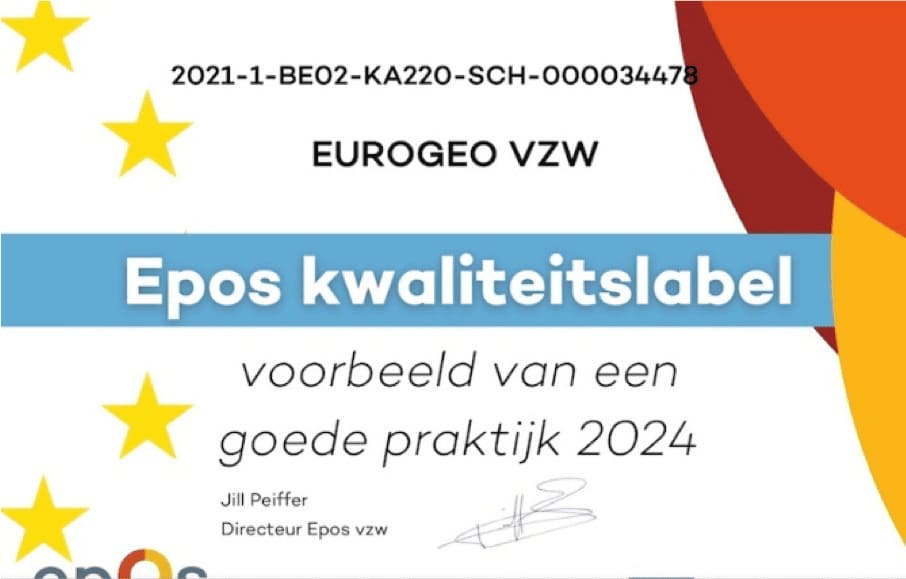(Zaragoza. Monday, May 12, 2025) This past Thursday, May 8, the Teaching The Future project on climate education for secondary education received the Erasmus+ Quality Label from the European Commission. As a result, it will be included in the repository of best practices for educational innovation and research within the KA2 Erasmus+ projects, alongside previous European projects MyGeo, D3, and Geoland, also carried out by the same research team at IUCA.
This project, which has also received the national award for educational innovation from the Association of Spanish Geographers, has been coordinated at the European level by EUROGEO and led by Miguel Ángel Saz, Deputy Director of IUCA and researcher in the Climate, Water, Global Change and Natural Systems group, along with Rafael de Miguel, Co-PI of the ARGOS Group. The project includes participation from several IUCA researchers across the GEOT, ARGOS, and Climate, Water, Global Change and Natural Systems groups, as well as from the GEOT-DS Action Group, part of the Campus Iberus Excellence Campus.
The project is based on the urgent need to address the climate emergency and ecological crisis. This initiative emerged in response to global student protests against the lack of action by national governments on the climate crisis.

One of the students’ main demands was to receive appropriate education that teaches secondary students the scientific basis of the climate crisis through the use of climate data. In addition, the project has analyzed curricula from the participating countries and the potential for integrating scientific data into school education.
An interactive data dashboard has been created, based on the use of Geographic Information Systems (GIS), as a unique teaching resource that compiles climate data and scientific information. It is designed for use in schools to support learning and teaching about climate.
Finally, an open-access online teacher training course has been developed, focused on teaching climate change using scientific data. This has enabled the implementation of empirical educational research into the use and effectiveness of the climate panel in relation to student learning of this essential curricular content, and its contribution to the acquisition of the sustainability competence (GreenComp).
More information at: teachingthefuture.eu

